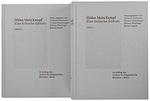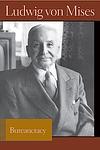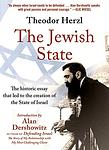The Greatest "Austria, Political" Books of All Time
Click to learn how this list is calculated.
This list represents a comprehensive and trusted collection of the greatest books. Developed through a specialized algorithm, it brings together 300 'best of' book lists to form a definitive guide to the world's most acclaimed books. For those interested in how these books are chosen, additional details can be found on the rankings page.
Genres
The "Political" category of books encompasses works that explore the theory, practice, and history of government and politics. These books may cover topics such as political ideologies, political systems, political institutions, political movements, and political leaders. They may also examine the relationship between politics and other areas of society, such as economics, culture, and international relations. Political books can be both informative and thought-provoking, offering readers insights into the complexities of the political world and the challenges of governing in a democratic society.
Countries
Date Range
Reading Statistics
Click the button below to see how many of these books you've read!
Download
If you're interested in downloading this list as a CSV file for use in a spreadsheet application, you can easily do so by clicking the button below. Please note that to ensure a manageable file size and faster download, the CSV will include details for only the first 500 books.
Download-
1. The Open Society by Karl Popper
This book is a critique of totalitarianism and a defense of liberal democracy. The author argues against the concept of a perfect, immutable society, instead advocating for an "open society" that allows for constant change and improvement. He criticizes theories of historical determinism and the notion of "the collective", emphasizing the importance of individual freedom and human rights. The book also examines and challenges the philosophies of Plato, Hegel, and Marx, linking their ideas to the rise of fascism and communism in the 20th century.
-
2. The Road to Serfdom by Friedrich von Hayek
"The Road to Serfdom" is a classic work of political philosophy and economics that argues against the concept of socialism and centralized economic planning. The author asserts that such systems inevitably lead to totalitarianism, infringing upon individual liberties and stifling innovation. The book further posits that only through free-market capitalism can societies maintain political and economic freedom. The author also explores the dangers of government control over means of production, illustrating that it leads to a loss of personal freedoms and the rise of dictatorial regimes.
-
3. Mein Kampf by Adolf Hitler
This book is a two-volume work written by a prominent dictator during his imprisonment in 1924. It outlines his political ideology and future plans for Germany, combining elements of autobiography with an exposition of his views on race, nationality, and governance. The author's main thesis is that the German-speaking 'Aryan' race is superior to all others, and that it is the duty of the state to preserve the purity of this race through policies of racial segregation, expansionism, and extermination. The book also contains detailed discussions on the author's hatred towards Jews, Marxism, and the parliamentary system.
-
4. The Constitution of Liberty by Friedrich von Hayek
This book is a comprehensive analysis of the concept of liberty, emphasizing the importance of individual freedom in political, societal, and economic contexts. The author argues that a free society, where individuals can act according to their own decisions and plans, is the most effective system for human progress. He also explores the relationship between law and liberty, the role of government in a free society, and the challenges to liberty posed by concepts such as social and economic justice.
-
5. Bureaucracy by Ludwig von Mises
"Bureaucracy" is a critical examination of the structure and function of bureaucracies in both the public and private sectors. The author argues that bureaucratic management, with its focus on rules and regulations, is not only inefficient but also stifles innovation and individual initiative. He further contends that these problems are inherent in the nature of bureaucracy itself and are not simply due to poor management or corruption. The book also explores the impact of bureaucracy on economics, politics, and society as a whole.
-
6. Der Judenstaat by Theodor Herzl
This book is a seminal work proposing the establishment of a Jewish state as a solution to the long-standing persecution of Jews in Europe. The author argues that the best way to avoid anti-Semitism is to create a state where Jews can govern themselves. He discusses potential locations for this state, including Palestine and Argentina, and outlines a detailed plan for its economic, political, and social structure. The book is considered a foundational text for the Zionist movement.
Reading Statistics
Click the button below to see how many of these books you've read!
Download
If you're interested in downloading this list as a CSV file for use in a spreadsheet application, you can easily do so by clicking the button below. Please note that to ensure a manageable file size and faster download, the CSV will include details for only the first 500 books.
Download




